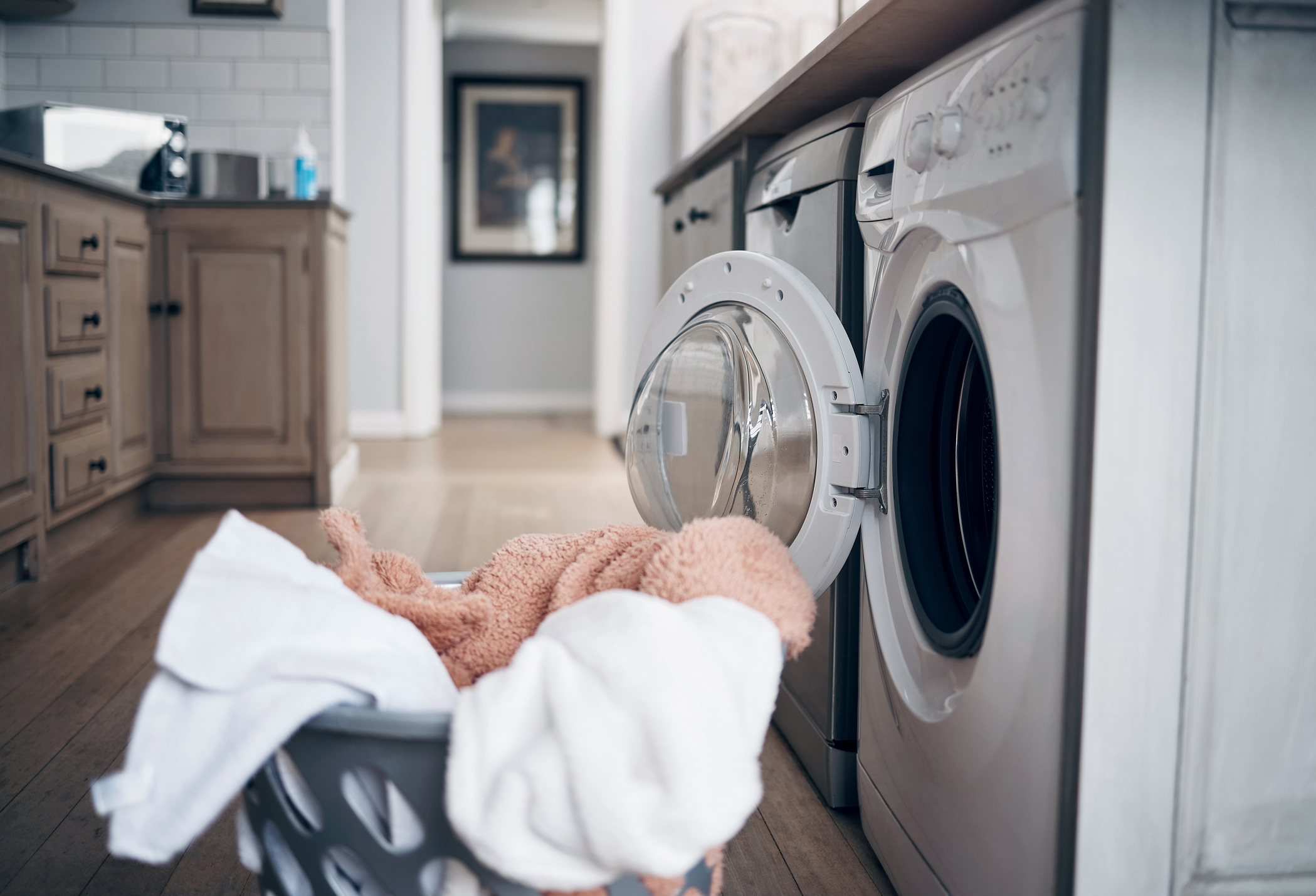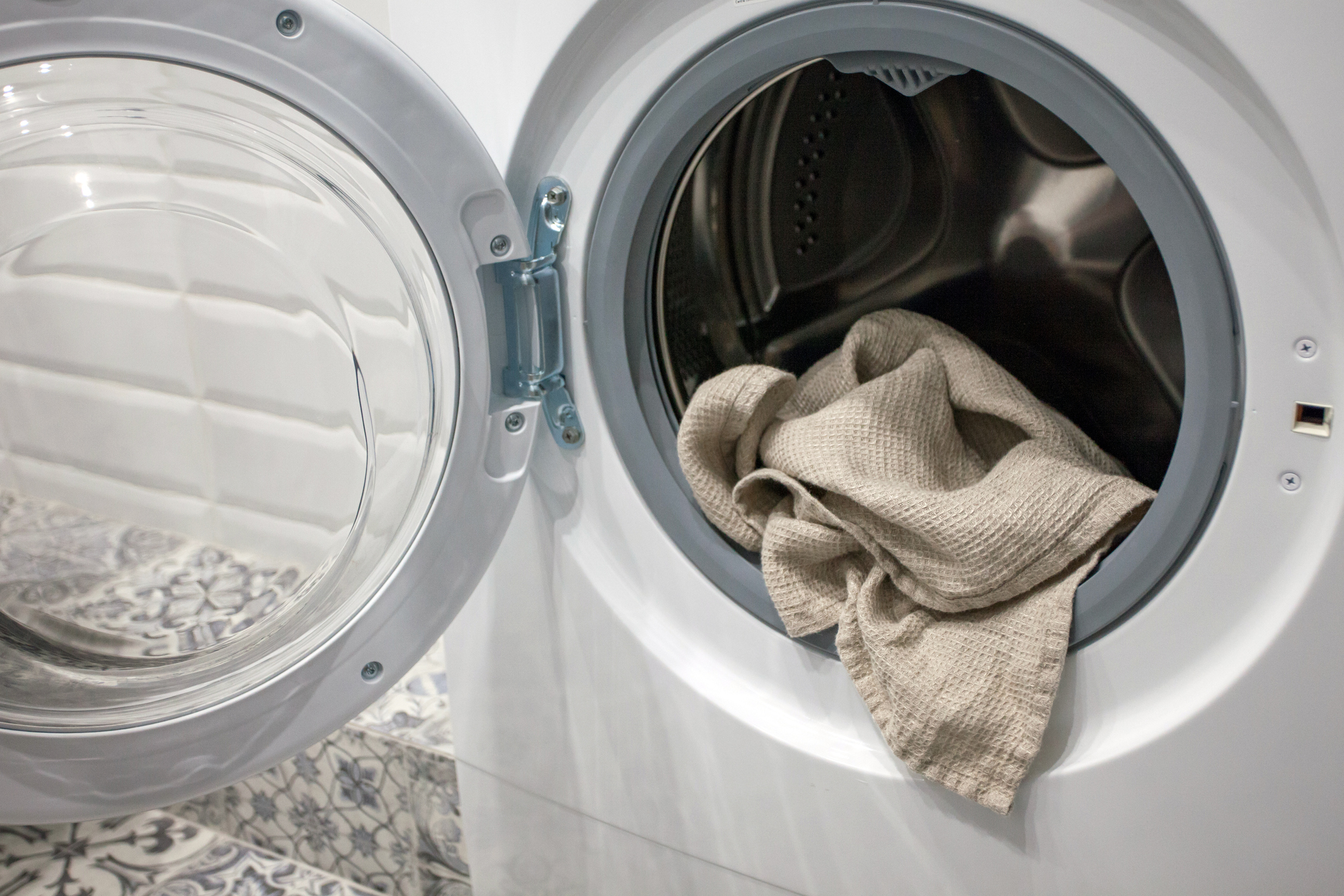How much does a tumble dryer cost to run and how can you make it cheaper?
We look at how much a tumble dryer costs to run, the factors that affect the cost and how you can reduce the price of running yours

The costs in this article have been updated in light of the revised energy price cap that came into effect on 1 October 2023. It has also been fact checked and any out of date information amended or removed.
Tumble dryers might offer a quick way to dry your clothes – but how much does a tumble dryer cost to run?
A tumble dryer can come in very handy during the winter months - as well as on those wet summer days. But running a tumble dryer regularly can also push up the cost of your energy bill.
Even though the energy price cap has dropped, it hasn’t stopped families worrying about how much their energy bills will cost, largely because prices are still higher than they were before the energy crisis began.
Creator of energy-saving mobile app HUGO, Ben Dhesi told us: “Now more than ever, understanding the cost of running our everyday appliances is crucial...
"With energy prices soaring over the past few years, families across the UK are feeling the pinch, and even with a new energy price cap on its way offering some relief, I think it’s best to empower households to make informed decisions and take control of their energy bills whatever the costs.”
How much does a tumble dryer cost to run?
As of 1 October 2023, an average 8kg tumble dryer will cost between £72.90 and £157.95 per year to run. That’s around 59p to £1.58 per use. This is based on the average price per unit of electricity being 27p per kilowatt hour.
However, your exact running costs will depend on the type, specification and energy rating of your tumble dryer as well as how often you use it. Those with larger families will likely need to use their tumble dryer more often than someone who lives alone. They might also have a larger capacity dryer that uses more energy to dry clothes.
Parenting advice, hot topics, best buys and family finance tips delivered straight to your inbox.
There are three different types of tumble dryer available:
- condenser
- vented
- heat pump.
Let’s look at the running costs for an example of each type. For our calculation, we’ll use 8kg models in our examples (which should be suitable for medium sized families) and assume that the tumble dryer will be used about twice a week.
Running costs for a vented tumble dryer
An 8kg example vented tumble dryer uses an average 5.85kWh of electricity on each use, which is around 585kWh each year. This means you can expect to pay roughly £1.58 per use or £157.95 per year.
Running costs for a condenser tumble dryer
An 8kg example of a condenser tumble dryer uses 5.6kWh of electricity for a standard cycle and roughly 560kWh per year. This works out as £1.51 per use or £151.20 per year.
Heat pump tumble dryer running costs
An 8kg example of a heat pump tumble dryer, uses 2.18kWh of electricity for each standard cycle, and roughly 270kWh per year. This then means this kind of tumble dryer will cost 59p per use or £72.90 per year.
| Header Cell - Column 0 | Per use | Per year |
|---|---|---|
| Condenser tumble dryer | £1.58 | £157.95 |
| Vented tumble dryer | £1.51 | £151.20 |
| Heat pump tumble dryer | 59p | £72.90 |
Use the tool below, courtesy of our friends at Go.Compare, to compare how much your most used appliances cost to run:
Which tumble dryer is the cheapest to run?
The cheapest type of tumble dryer to run is a heat pump tumble dryer, costing around 60% less to run than a vented or condenser version. But they're not necessarily the cheapest way to dry clothes.
Product sales trainer for Miele GB, Tom Akers, says: “Unlike a vented or condenser dryer, a heat pump does not have a heating element and instead uses an air source heat pump. A heating element is the most energy intensive component in a tumble dryer, so the absence of one of these makes a heat pump significantly more efficient and cost effective to run. A further benefit is that an external wall vent is not required, and therefore there are many possible installation options.”
However, heat pump dryers tend to cost more to buy than condenser tumble dryers. You can expect to pay at least £500 for a heat pump tumble dryer, with top models costing more than £1,000.

What affects how much a tumble dryer costs to run?
It is not just the type of tumble dryers that will affect the cost of running, you also need to consider the model’s energy rating. All household appliances come with energy ratings of A+++ all the way down to G, with an A+++ rating being the most energy efficient, and a G rated appliance being the least energy efficient.
In its guide to buying efficient home appliances, the Energy Saving Trust estimates that buying a highest-rated A+++ tumble dryer can save you approximately £980 over its 13-year lifetime compared to a B-rated one.
What features should you look for when buying a tumble dryer?
Sensor drying
Most tumble dryers now have a sensor drying feature, as HUGO’s Ben Dhesi explains: “These intelligent dryers can detect when your clothes are dry and automatically stop the cycle, saving you from wasting unnecessary energy. Timed drying options are also handy, allowing you to set the desired drying time for different types of fabrics which can help prevent shrinkage or other damage.”
Lower temperatures
Look out for various temperature settings if you want to buy a new tumble dryer. While it is tempting to whack the tumble dryer up to its highest heat setting and get your washing done, drying on lower temperature settings will use less energy while also protecting your clothes.
Auto-cleaning
Cleaning out the tumble dryer is not always the most pleasant of tasks, but it is sure to keep it running efficiently. A tumble dryer with an auto-cleaning feature not only does the job for you, but it likely does a better job than you. This feature uses water collected during the drying phase to clean away fluff at the end of each cycle, so you're not using any additional energy to keep the dryer in great condition.
How can you reduce the cost of running a tumble dryer?
The best way to reduce the running costs of your tumble dryer is to use it less often. You could reduce the number of washes you do each week, which will in turn reduce how often you need to use your tumble dryer. Or, if you can’t reduce how often you put the washing on, then you could try to dry clothes using a clothes horse or a radiator.
Founder of BOXT, Andy Kerr, adds: “Buying heated or unheated clothes airers can save you hundreds of pounds a year and hanging your clothes out to dry in warmer months will completely cut the cost of using a tumble dryer.”
But there are other hacks that can help you avoid wasting energy when it comes to your tumble dryer.
Avoid light loads
If you do need to use your tumble dryer, make sure you are drying a full load. It’ll use the same amount of energy to dry a smaller load as a larger one.
However, product marketing manager at appliance manufacturer Hisense, Matthew Glynn, points out: “It’s important that in a bid to be more efficient, you don’t end up overfilling the drum, as this will ultimately affect the drying results and may possibly require another cycle to achieve the desired outcome.”

Untangle your clothes
Before putting the laundry in your tumble dryer give each item a shake to smooth out any crumples so they can tumble effectively in the drum. Especially keep an eye on balled up socks - they might feel dry when they come out, but you’ll notice they're still damp once they are un-balled.
Try tumble dryer balls
Not only can tumble dryer balls help to soften laundry, they can also help to reduce drying times by up to 25%. Throw them in with your laundry and they will help lift and separate the laundry through the drying process, allowing the hot air to flow more efficiently and dry your clothes quicker. You can buy a pack of six from Amazon for around £10.
Maintenance is key
Making sure your dryer is well maintained will also help keep costs down. This means keeping it free of dust and lint which can clog up the filter and extend drying times.
Andy Kerr from BOXT says: “Your tumble dryer will run more efficiently if the lint filter is empty, meaning clothes take less time to dry and less energy is used. Having a full lint filter is also extremely dangerous, as it stops dryers from being able to exhaust hot air. This can cause tumble dryers to overheat and even set on fire.”
You will usually find the filter located just inside the door, rim or behind a panel at the front of the dryer.
It’s also important to make sure your tumble dryer is positioned correctly as energy expert Ben Dhesi explains: “When using your tumble dryer, make sure that it has enough space around it for proper ventilation. Good airflow not only keeps your dryer happy and efficient but also prevents the buildup of heat and potential hazards, so if need be, pull it out from under your counter slightly while in use.”
You might also be interested in our other appliance running cost articles:
- How much does it cost to run an air fryer?
- How much does it cost to boil a kettle?
- How much does it cost to run a microwave?
- How much does it cost to run a washing machine?
- How much does it cost to run a heated clothes dryer?
- How much does it cost to run an electric blanket?
- How much does it cost to run an indoor heater?
- How much does it cost to run a dehumidifier?
- How much does it cost to run a dishwasher?
- How much electricity does a TV use?
You might be able to save on your energy bills by switching tariffs - use a price comparison site like Go.Compare to see that latest offers.
Sarah is GoodtoKnow’s Money Editor. After Sarah graduated from University of Wales, Aberystwyth, with a degree in English and Creative Writing, she entered the world of publishing in 2007, working as a writer and digital editor on a range of titles including Real Homes, Homebuilding & Renovating, The Money Edit and more. When not writing or editing, Sarah can be found hanging out with her rockstar dog, getting opinionated about a movie or learning British Sign Language.
- Rachel WaitPersonal finance expert
- Emma LunnPersonal finance expert